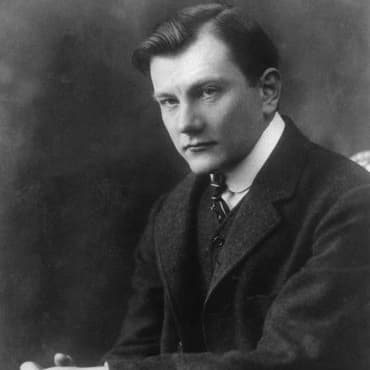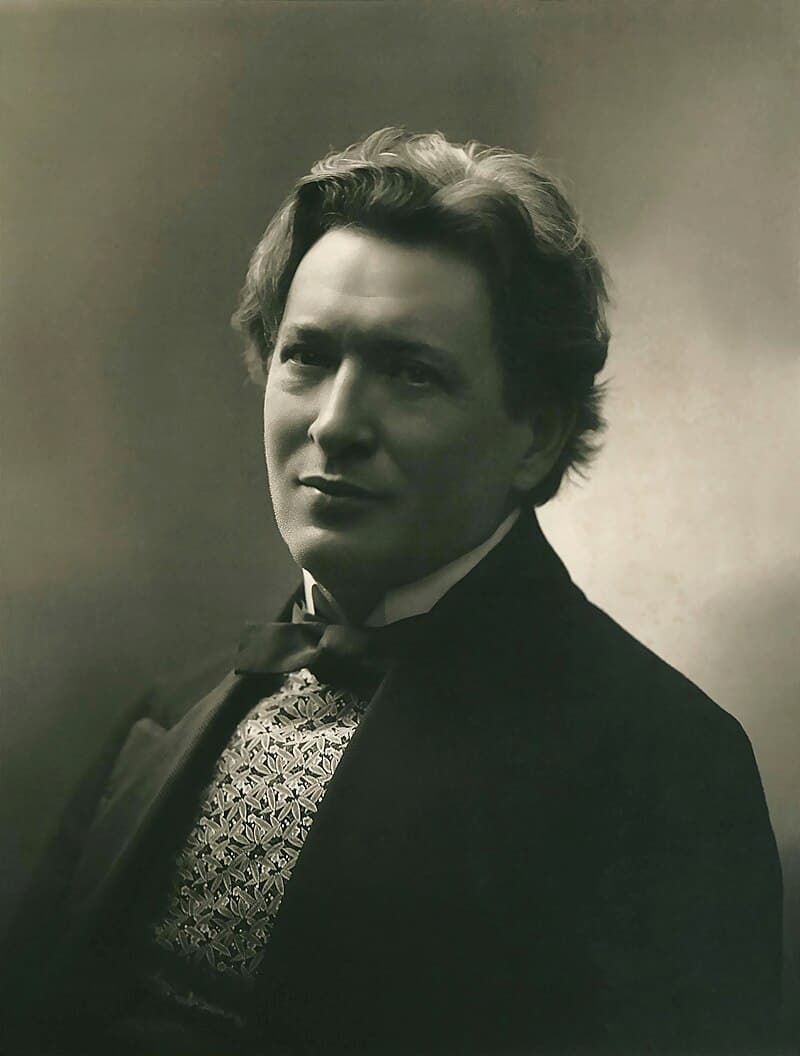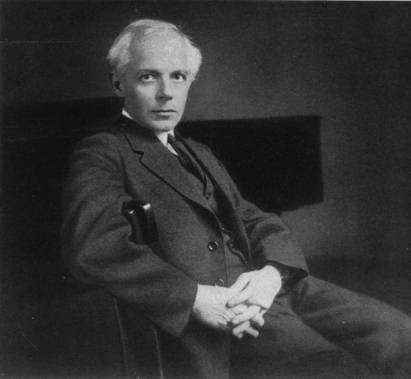Several pieces have the word ‘olden’ in their titles. We’ll look at 4 works and see that each composer carries a different meaning for the word.
Henryk Górecki: 3 Olden Style Pieces

Henryk Górecki (photo by Gerry Hurkmans)
Górecki combined elements of folk origins with modern music techniques, with his interest in sonority coming to the fore. The piece was written in 1963.
For Górecki, ‘olden’ means folk. His melodies have to conform to a style, but his harmonies are distinctly his own.
Henryk Górecki: 3 Olden Style Pieces – II. — (Polish National Radio Symphony Orchestra; Antoni Wit, cond.)
Ernő Dohnányi: Suite in the Olden Style, Op. 24

Ernő Dohnányi, 1905
Written while the composer was in Berlin (1905–1915), it came at a very tempestuous time in his life. After a number of years on the concert circuit, he was appointed as a Professor at the Berlin College of Music. His wife, who had been largely left at home with their two children, hoped this would give Dohnányi the opportunity to settle down and have a home life. Unfortunately, he met and fell in love with the actress Elsa Galafrés, which ended his marriage. This piano suite is very much linked to the congenial musical atmosphere he found in Berlin. The six works have a fine structure, with perfect development sections, and virtuoso counterpoint. If the works are unlike Dohnányi’s regular musical writing, behind it all is his elegant humour.
For Dohnányi, ‘olden’ means writing a suite. This work doesn’t follow Dohnányi’s usual style but gives him the opportunity to write engaging music using Renaissance and Baroque dance suite titles. Other movements are an Allemande, a Sarabande, a Menuet, and a Gigue.
Ernő Dohnányi: Suite in the Olden Style, Op. 24 – III. Courante: Vivace (Sofja Gülbadamova, piano)
Ferruccio Busoni: 6 Pieces, Op. 33b – No. 4. Fantasia in modo antico (Fantasy in olden style): Largamente, molto espressivo – Allegro risoluto

Ferruccio Busoni, 1913 (Photo by Varischi & Artico)
Busoni’s Six Pieces, written in 1895–1896, marks the end of his virtuoso period. The Fantasia is a work in a true Bachian manner that shows off with its fugal section. In the end, earlier ideas are drawn together to make an intense dialogue between the parts. We have to remember that, as a performer, Bach was very much part of his repertoire, starting with his study of Bach in his youth. He was also known for his Bach transcriptions, which were far better received than his own compositions.
For Busoni, he looks back to Bach for his olden style. Bach was the composer from his youth and the core of what much of his later career was built around.
Ferruccio Busoni: 6 Pieces, Op. 33b: No. 4. Fantasia in modo antico (Fantasy in olden style): Largamente, molto espressivo – Allegro risoluto (Wolf Harden, piano)
Béla Bartók: Elmúlt időkből (From Olden Times), BB 112

Béla Bartók, 1927
Bartók’s work for male choir was, in his own words written to ‘modified old folk- and art-song texts.’ Zoltán Koldály had been trying to persuade Bartók since the mid-1920s to write choral works and his appointment in 1934 to the Hungarian Academy of Sciences so that he could work on compiling and editing the complete collection of Hungarian Folk Songs. It was the impetus for Bartók to study the songs and then write his own music.
It was this systematic study of the folksong texts that permitted Bartók to sort through the songs full of archaic language and assemble a set of texts that could be edited and stylized. The work has three movements, and the outside movements contradict each other: No. 1: ‘No one’s more unhappy than the peasant’ and No. 3 ’No one’s happier than the peasant’. The middle movement, ‘One, two, three, four’, is local business: I’ll give you a handful of chestnuts to buy a blanket for Jutka who will give us wine that we will give to the coachman to get manure to grow wheat to give to the miller to get flour to give to his auntie to make bread that they give to their landlord who beats them with a stick. Despite all the business, the final line is ‘Life is great!’.
Béla Bartók: Elmúlt időkből (From Olden Times), BB 112: No. 2. Egy, kettő, három, négy (One, two, three, four) (Hungarian National Chorus, male section; Zoltán Kocsis, cond.)
These different meanings for ‘olden’: folk music, folk song, Bach, and Renaissance forms, give us an idea of how broad the past can be.
For more of the best in classical music, sign up for our E-Newsletter
